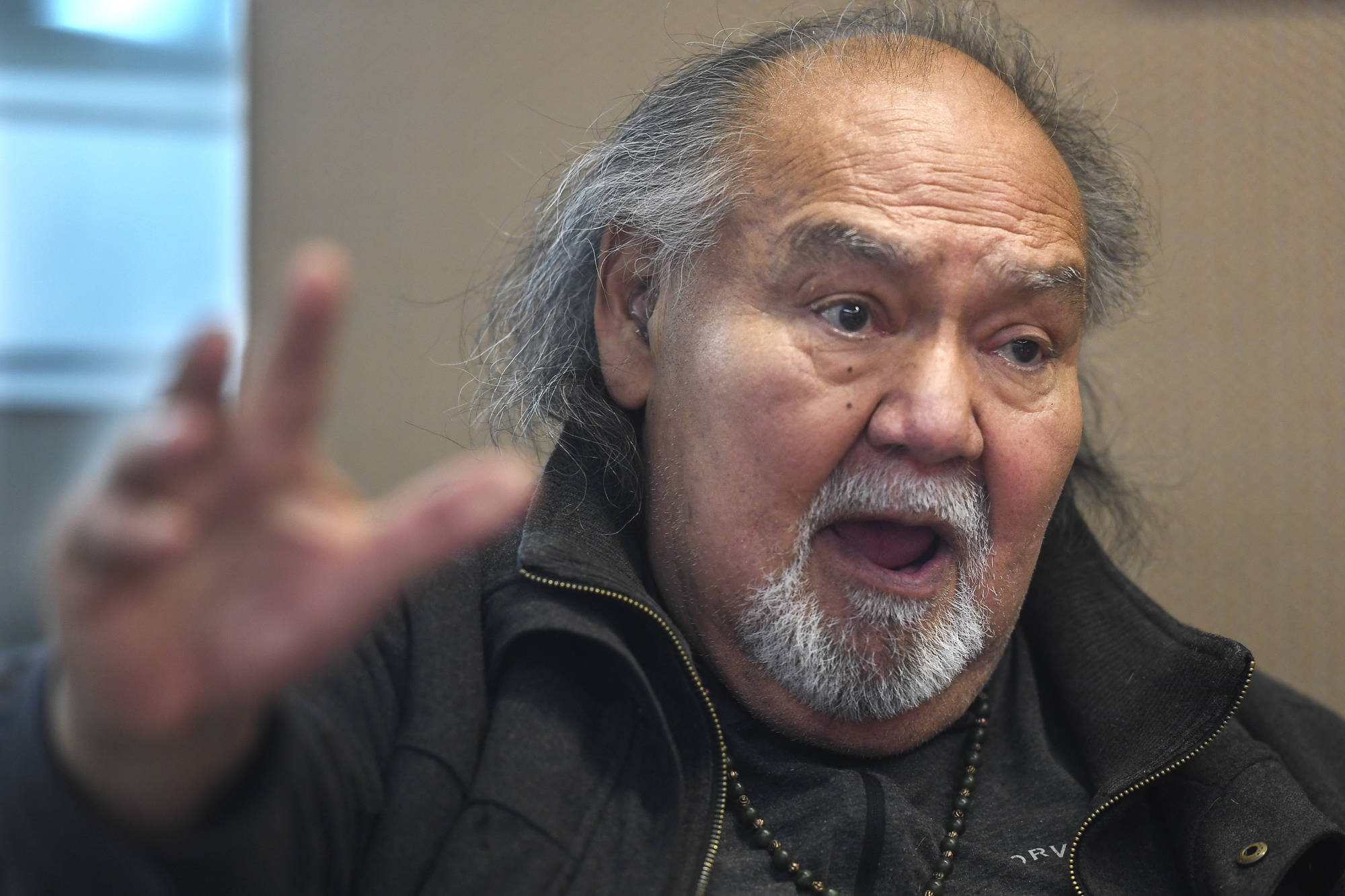Correction: An earlier version of this article incorrectly stated the award presented to David Katzeek was from the Juneau School District Board of Education. The award was a Legislative Citation presented to Katzeek from Rep. Andi Story, D-Juneau at a school. The Empire regrets this error.
David Katzeek has worked with the Juneau School District since the 1990s, sharing the Tlingit language and culture with new generations.
Tuesday night, state Rep. Andi Story, D-Juneau, presented Katzeek with a Legislative Citation for his years of service with the Tlingit Culture, Language and Literacy program. Legislative Citations are honorary awards given in recognition of a group or individual.
“David has been an advocate for legislative changes and has provided advice and focus for those who want to increase (Tlingit) language and culture,” Story said as she presented the award to Katzeek.
Wednesday afternoon, Katzeek sat down with the Empire to discuss the importance of language and sharing his culture.
Katzeek said he started speaking Tlingit as a child, learning it from his parents and grandparents who spoke it in the home. Born in 1942, Katzeek remembers a time in the 1950s when anthropologists working for the federal government came to study the Tlingit people.
“When I was (about 12), there was some question with respect to the tidelands, down where you see Centennial Hall,” Katzeek said. “A delegation came in to ask the Native people how many times did they land their canoes on the beach in a day, what kind of fish did they catch. I was able to see the different people coming ashore and planting their flag.”
At that time there were efforts within the Tlingit community to not teach the Native language to young people, Katzeek said, “to help our children become competitive in today’s society,” he said. But there was a reversal in the 1970s that started with traditional music.
“What really was the focus at the time was the music of the people,” Katzeek said. “The traditional dance of our people and the words that went into the songs and dances.”
There is a scarcity of fluent Tlingit speakers, leading to a number of revival efforts for Native languages including Lingít, the Tlingit language.
For Katzeek, there is a deep power and significance in language. Pulling apart the roots and origins of words was critical to understanding their true meaning. He gave the example of Yadaa.at Kalé, the Tlingit name of Juneau-Douglas High School. The word roughly translates to “the beautiful face,” but how it got that name is where it gets its meaning.
The beautiful face ostensibly refers to Mount Juneau, but the name came about because it’s what returning fishing parties would see as they struggled their way back.
“They would have to go out in small canoes, in the winter time,” Katzeek said. Fighting against the currents, “They’d say, ‘are we going to make it, are we going to be able to see our children?’ Then, they see that beautiful face of the mountain.”
Katzeek was involved with giving the name to JDHS and said it was appropriate for a high school.
“They go through challenges there too, in the school system,” he said.
Sharing one’s language was important in helping to give people a broader world view, Katzeek said. Language affects people’s thoughts and world view according to Katzeek, and speaking only one language was limiting in some ways.
“When I drive down the road, and I have only one headlight, I am not going to be able to see as good as I could with two headlights,” he said. “The U.S. is probably one of the few nations that do not teach a variety of languages. Other countries, they’re speaking three or more languages.”
Katzeek said he was humbled by the award Tuesday night, but he didn’t get into education because he wanted recognition. The cultural significance of language and how words convey meaning are a special thing to share.
“When I begin to look at the root of a word, and really get in connection with the word, the intimacy, the admiration of a word, and how it was placed. Almost like an artist placing something, to enhance something someone else might experience,” Katzeek said. “I sense the presence of my ancestors…when I start reading something, looking at something that came from my grandfather’s people, I’m listening to their heartbeat, that’s the reason why I like what I do.”
• Contact reporter Peter Segall at 523-2228 or psegall@juneauempire.com.

